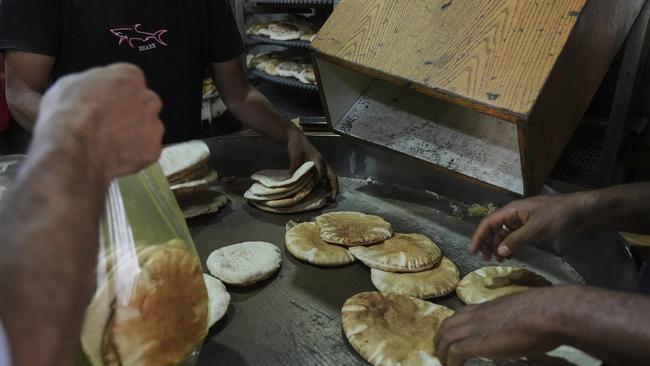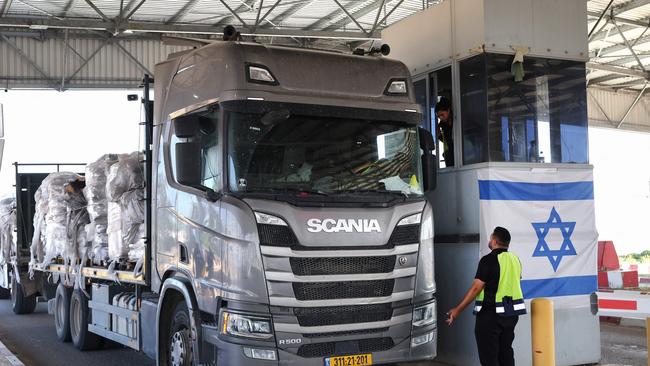Wrong target for PM’s Gaza aid fury

Prime Minister Anthony Albanese’s condemnation on Monday of Israel’s efforts to relieve the aid situation in Gaza as “completely unacceptable” and “outrageous” reflects an extremely troubling oversimplification of a deeply complex issue.
While humanitarian concerns are valid, dismissing Israel’s security considerations and the role of Hamas in exacerbating the crisis undermines efforts towards a sustainable resolution.
That more aid needs to get into Gaza is self-evident and not in dispute. At issue here, however, is how to distribute that aid in such a manner that it reaches those who actually need it, and not allow Hamas, an Australian-designated terror group that initiated the October 7 massacre in 2023, to continue to siphon, divert, profit and weaponise from it, as it has been systematically doing.
In his press conference on Monday, Albanese insisted he found “Israel’s excuses and explanations completely untenable and without credibility”. Yet last week, even Palestinian Authority president Mahmoud Abbas himself, in an unprecedented statement, condemned Hamas for “looting and stealing” humanitarian aid intended for the people of Gaza. Ignoring this reality not only misrepresents the situation on the ground, but also risks emboldening Hamas by absolving it of responsibility and undermining efforts of aid actually reaching the civilian population in Gaza.
The Prime Minister’s remarks also overlook the extraordinary efforts Israel has made to facilitate aid while ensuring security, all the while fighting an enemy that continues to use human shields and steal aid to underwrite its terror operations and the ongoing captivity of hostages.
Since the war began, we’ve facilitated the entry of over 1.7 million tons of humanitarian aid into Gaza.
— Israel Defense Forces (@IDF) May 25, 2025
Our war is against Hamas, not the people of Gaza. @cogatonlinepic.twitter.com/9qWFuMyY5P
Since the October 7 attacks by Hamas, Israel has facilitated almost 100,000 trucks carrying 1.8 million tonnes of aid into Gaza. Meantime, since the commencement of phase one of the hostage-ceasefire deal on January 19 this year, more than 25,000 trucks entered Gaza (about 600 a day), carrying a total of 57,000 tonnes of food. This was at a greater level than pre-war aid deliveries.
On March 1, however, and after repeated refusals by Hamas to agree to US proposals to extend the second phase of the ceasefire, Israel was left with no alternative but to halt the supply of aid into the Gaza Strip, a decision it did so within the strict confines of international law, and specifically Article 23 of the fourth Geneva Convention, which permits states to halt the entry of aid when there is serious reason to believe these supplies are being diverted from their destination or used for military purposes, as has been the case with Hamas.
Notwithstanding the belief by Israeli intelligence services that there is sufficient food currently available in Gaza, and independent assessments rejecting false and libellous accusations of starvation and famine, last week Israel reopened the entry of aid into the Gaza Strip, to “prevent the development of a hunger crisis” there and “due to the operational need to enable the expansion of intense fighting to defeat Hamas”.
Since then, about 400 trucks carrying humanitarian aid, including flour, food and medical equipment, have entered Gaza, with every effort continuing to be made to ensure the aid does not reach the hands of Hamas.
It is imperative to underscore that the public condemnation of Israel without acknowledging Hamas’s role in the humanitarian crisis risks skewing international perception and policy decisions in Canberra. When the West refuses to recognise this, and instead reflexively condemns Israel, while threatening the Jewish state with further sanctions, as the UK, Canada and France recently did, they are warmly thanked by Hamas.

If Albanese does not change this approach, Australia, too, risks the dubious honour of receiving a thank-you note from Hamas. Instead, Australia’s foreign policy should aim to support both humanitarian objectives in Gaza and the security of Israel, not echo falsehoods about famine while singling out Israel for opprobrium and castigation.
The challenge always has been, and remains, how to ensure aid reaches the intended civilian population without being co-opted by Hamas. In that regard, there is a new entity, the Gaza Humanitarian Foundation, a US and Israel-backed international aid organisation established to manage a new model for distributing humanitarian aid in Gaza, in such a way that it is not diverted by Hamas. Australia should warmly welcome this approach and seek ways to contribute through its extensive know-how and resources.
While the plight of civilians in Gaza is deeply concerning, it is imperative that Australia’s response is informed by a comprehensive understanding of the factors at play and Hamas’s exacerbation of the suffering. Acknowledging the complexities and engaging in balanced diplomacy will better serve the goals of peace and humanitarian relief.
Arsen Ostrovsky is an Australian-Israeli human rights lawyer.



